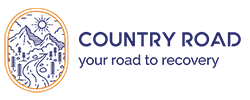Sometimes you’ve just gotta call it how you see it. Recognizing someone is struggling with addiction and saying something about it is uncomfortable. It’s easier to deflect and avoid confrontation by saying things like, “he’s had a rough year,” or “she’s just decompressing, everyone drinks to relax.” While we rationalize their behavior, addiction quietly slips in the front door and takes over. Country Road Clinical Director Derek Talkington puts it like this, “The first time you find yourself asking, ‘Is this an addiction?’ - that’s when you know.”
Addiction Loves Making You Second-Guess Yourself
Addiction’s greatest skill is manipulation. The person using will manipulate themselves and everyone around them if it means continuing to use drugs and alcohol. It convinces family and friends to explain away strange behaviors and to normalize what’s actually pretty far from normal.
“Not everybody’s got a cup of Jameson in their hand at 7 in the morning…with no coffee.”
Denial is a survival tool, and when you love someone, your brain will do all sorts of mental gymnastics to protect your image of them.
Addiction Red Flags
“He was going to college. Had a plan. And now he’s not going anywhere.”
People caught in the cycle of substance abuse implode their lives over time. Constantly missing work? Bailing on responsibilities? Making up excuses for their behavior that sounds plausible but you know isn’t true? Are they backing away from goals and values they once had? Maybe they’re breaking the law or risking safety, but always with an excuse in hand.
The signs of addiction are always there - they just get ignored in favor of avoiding confrontation. If someone can’t stop using even when they want to, if their life is crumbling around them and they keep reaching for the bottle or the pills - that’s not a rough patch. That’s addiction.
The Emotional Appeal Doesn’t Work Like You Think
The sad fact is that when someone is well and truly in the grips of an addiction, emotional appeals don’t work. Drugs of abuse dysregulate the neurobiology of emotions on a primal level in the brain. Addiction doesn’t respond to logic.
One client said, “Those emotional appeals just made it worse. They pushed me deeper into using.” Addiction isn’t a character flaw or a lack of willpower. It’s a disease and it doesn’t care how many heart-to-hearts you’ve had.
So What Does Work? It Starts With You
Addiction is messy, complex, and entangled with everyone and everything around it. So that means if you’re caught up in the spider web of someone else’s addiction, you may be part of the problem. That doesn’t mean you’re to blame. But it does mean that your behavior, your enabling, your rescuing, your justifying, might be keeping things stuck.
The family member of a Country Road client put it like this: “As much as we want to help, we are part of the problem.”
Change can start with you. Get yourself help first. When you sacrifice your peace, your boundaries, and your well-being to keep someone else from falling apart - you’re falling apart, too. And no one gets better in that dynamic. Healing starts with you.
Say the Thing No One Wants to Say
Not talking about someone's addiction doesn’t make it not real. At some point you’ve got to acknowledge the reality of the situation if you ever want something different.
“One day I just said it: ‘This is about the pills.’ And that was the moment everything started to change.” Addiction thrives in silence. Truth is what cracks it wide open.
Want More Support?
If you’re ready to say the quiet part out loud, give Country Road Recovery Center a call today. Our clinical team can help you navigate what getting help for your loved one looks like. You don’t have to have all the answers. You just have to take the next right step.


